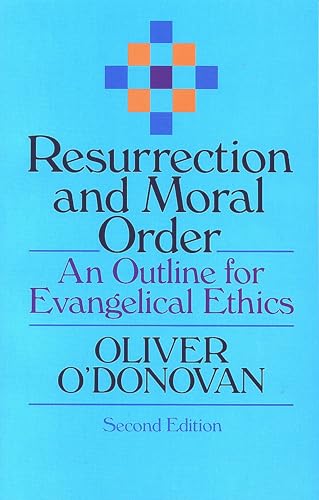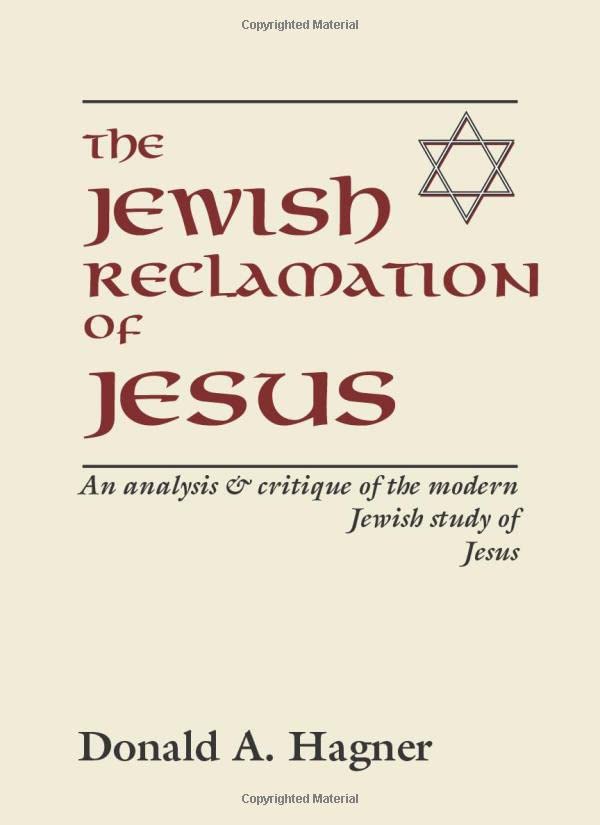Medicine and the Bible is the third in a trilogy published by the Christian Medical Fellowship; the other two are Decision Making in Medicine (1979) and The Influence of Christians in Medicine (1984). It arises from concern ‘to establish the essential relationship between the Bible and Medicine’, and it is intended to be ‘an up-to-date survey of some of the most important issues facing the medical profession today as seen in the light of the teaching of the Bible (pp. 9–10).
Chapters 1–4 concentrate on biblical material. Chapters 1–2 are entitled ‘Medicine in the OT/NT World’, though the second in particular might more accurately be headed ‘Biblical references to medical matters considered in the light of the contemporary background’. Much of the contents can be found in Bible dictionaries, but there is some new and updated material, and it is conveniently compiled. Chapter 3 is a discussion of the Levitical Code, and concludes that its primary purpose was to help in the separation of a holy nation, and that it also had incidental value in the development of hygiene. Chapter 4 discusses the identity of the disease(s) represented in most English Bible translations by ‘leprosy’, and concludes that ‘both (Hebrew) ṣa̅ráat and (Greek) lepra present such a wide range of meaning that they are virtually untranslatable’ (p. 124); the chapter is a useful case study in biblical semantics.
Chapters 5–9 deal with a selection of current medical topics—the value of human life, homosexuality, demon possession, healing, and conscience. Their writers aim to show ‘the relevance of biblical principles to modern medical practice’, and they will be criticized mainly by those who beieve that ‘the Bible is not relevant to our contemporary social situation’ (p. 151). Chapter 7, on demon possession, although restricting itself to a ‘medical perspective in a western culture’, seems to me to fail to come to grips with its subject, as it does not clearly answer the questions ‘May people be possessed by demonic forces today?’, ‘If so, what might the presenting symptoms be, and how should such people be treated?’, and ‘Are there spiritual states in which there is a (lesser) degree of demonic invasion—and if so, what should be done about them?’. John Richards’ standard work But Deliver us from Evil (1974) is not even mentioned in the notes to this chapter. Chapter 8, on healing, maintains a balance between extreme ‘dispensationalist’ and ‘triumphalist’ viewpoints, and reaches a position similar to that of Rex Gardner’s book reviewed below.
In the preface the editor says that Medicine and the Bible will appeal to Bible teachers, members of the caring professions, and all who see in the Bible a precept for living. Although its contents are valuable and its contributors eminent, I am left wondering (i) whether the book has been aimed at too wide a readership, and (ii) whether it has demonstrated that there is an ‘essential relationship between the Bible and Medicine’. Theological students will, I believe, find it useful for reference in libraries.
Healing Miracles: a doctor investigates is a more exciting and challenging book. It addresses itself ‘to the practical and clamant problems not only of the Christian who is ill, but of the doctor or the Christian counsellor’, and is written for people ‘who need to know with some urgency where they and their patients stand as regards miraculous healing’. (By ‘miraculous healing’, the author means ‘the healing of organic disease by means, or at a speed, inexplicable medically and preceded by prayer in the name of Jesus Christ’, p. 1).
The book is a discussion of healing, prayer, and gifts of the Holy Spirit, in the NT, in church history, and at the present day. It is illustrated by 24 medical case records, and by references to the Bible, to biographical materials from many periods of church history, to missionary narratives and to contemporary experience.
Some Christians believe that gifts of ‘miraculous healings’—and perhaps other charismata such as the gift of ‘tongues’—were marks of the apostolic age only, and then ceased; anything like them today they regard as counterfeit. Gardner considers this view in Chapters 4 and 7, and I believe he conclusively disproves it.
Rather more Christians today seem to me to have an illogical attitude to ‘miraculous healing’—they are impossible to please! If prayed—for healing is sudden, they say it is ‘over-dramatic’; if it is slow, it is ‘natural remission’. If some particularly hard evidence is brought, they merely ask for more—and they have their stock of stories about people who were not healed. Gardner clearly shows that this evasion is not good enough. By presenting a wide range of samples of the sorts of things that actually happen, and by considering their medical, theological and pastoral implications, he makes his case in a very open, eirenic and practically helpful way. He concludes that ‘there remain some cures for which medicine has no explanation’, and ‘that in these cases the constant association of prayer to God cannot be discounted’ (p. 205).
Gardner’s most challenging conclusion is that although today ‘only a small percentage of those for whom physical healing is sought from God to obtain it … in absolute terms the number appears to be fairly rapidly increasing as more churches become open to this work of God; and percentage-wise more are being healed as the Holy Spirit is being permitted to develop ministries within local fellowships’. In other words, we are challenged to be open to God’s leading to personal activity in this area. The fact remains that in most theological teaching institutions little theoretical or practical instruction is given on these matters, and in some it is actively discouraged. If theology is the study of God and of his acts, every student of theology should read this book. Academically, it provides a valuable antidote to contemporary dismissal of ‘interventionism’ (e.g. J. Macquarrie, Principles of Christian Theology, rev. ed., pp. 247 ff.); pastorally, it is practically very helpful on the actual dilemmas of Christian healing ministry today.
Roger Cowley
Oak Hill College, London







